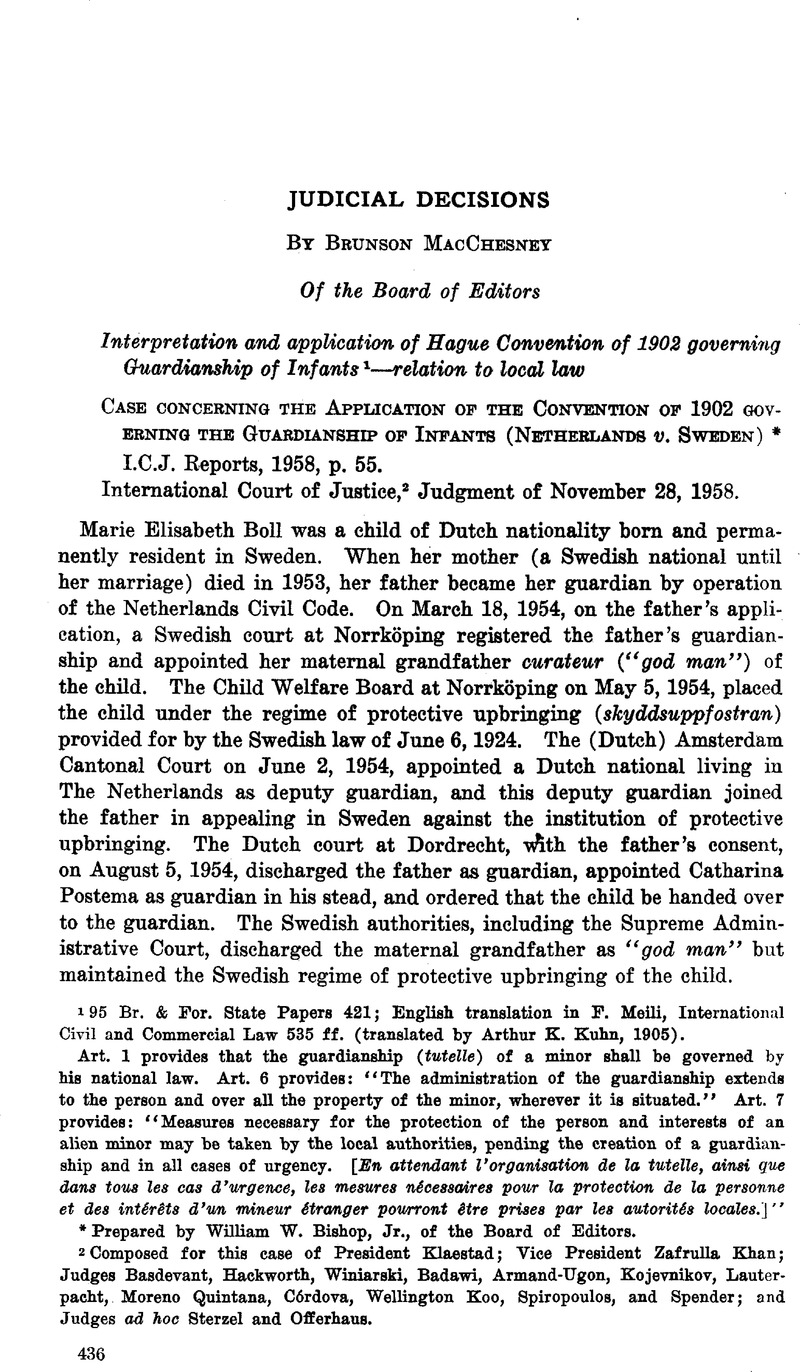No CrossRef data available.
Published online by Cambridge University Press: 28 March 2017

Prepared by William W. Bishop, Jr., of the Board of Editors.
1 95 Br.&For. State Papers 421; English translation in F. Meili, International Civil and Commercial Law 535 ff. (translated by Arthur K. Kuhn, 1905).
Art. 1 provides that the guardianship (tutelle) of a minor shall be governed by his national law. Art. 6 provides: “The administration of the guardianship extends to the person and over all the property of the minor, wherever it is situated.” Art. 7 provides: “Measures necessary for the protection of the person and interests of an alien minor may be taken by the local authorities, pending the creation of a guardianship and in all cases of urgency. [En attendant Vorganisation de la tutelle, ainsi que dans tous les cas d'urgence, les mesures nécessaires pour la protection de la personne et des intéréts d'un mineur étranger pourront étre prises par les autorités locales.]“
2 Composed for this case of President Klaestad; “Vice President Zafrulla Khan; Judges Basdevant, Hackworth, Winiarski, Badawi, Armand-Ugon, Kojevnikov, Lauterpacht, Moreno Quintana, Córdova, Wellington Koo, Spiropoulos, and Spender; and Judges ad hoc Sterzel and Offerhaus.
3 The dissenting judges believed that application of the Swedish law on protective upbringing did contravene the obligations of the convention, which ought to prevail over national law in case of such conflict.
The separate opinions were devoted particularly to questions of the relationship of ordre public (“public policy“) to the normal application of rules of conflict of laws, and its status as an exception to otherwise applicable provisions of a treaty dealing with private international law.